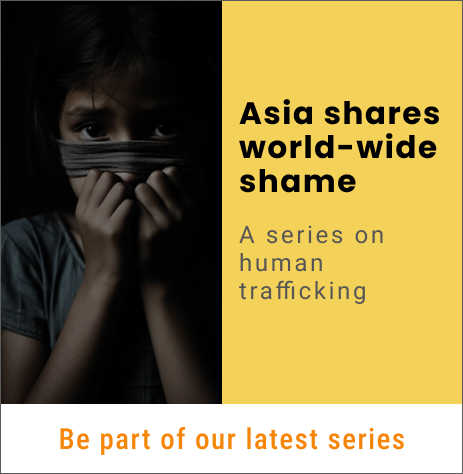Church-run University of St. Joseph (USJ) and Municipal Affairs Bureau in Macau have joined hands to plant hundreds of trees to tackle depletion of mangrove forests along the coastline, says a report.
Some 800 trees will be planted along the Taipa coastline between March 16-24, as part of the observance of Green Week in Macau, reported Jornal 0-Clarim, the Portuguese language weekly of Macau Catholic Diocese.
The Macau government has been promoting Green Week to highlight the need for protection of environment for more than four decades.

As part of the initiative, the Green Week festival is scheduled to take place from March 16-17 at Taipa Museum in the city.
The university will participate in the festival and present its research work done by its Institute of Science and Environment in various fields such as conservation of coastal areas and the importance of preserving mangrove forests.
“We will actively participate in the Green Week Festival, with stalls that will present materials and activities that are relevant to our research and that can contribute, at the same time, to raising public environmental awareness,” said Karen Tagulao, a USJ professor.
“We will take panels to the Houses-Museum that cover various topics that we consider relevant, such as mangrove conservation, freshwater ecosystems, water management, sustainable use of the oceans, sustainable fishing or plastic pollution,” Tagulao added.
The USJ team will display materials about the research conducted on mangroves and coastal wetlands.
“Among the resources on display will be interactive tanks that demonstrate how mangroves can protect the coastline by mitigating the impact of waves. We will also try to highlight biodiversity in these areas with photographs and interactive games,” Tagulao further added.
On March 17, a group of USJ students will plant trees as part of afforestation of a section of the coastline on the Taipa coast.
The Municipal Affairs Bureau intends to plant hundreds of new mangrove trees, in a process that should contribute to reinforcing the process of rehabilitating the natural diversity of the coastal areas of Taipa and Coloane, Jornal 0-Clarim reported.
The conservation efforts undertaken have been quite successful, Tagulao said.
“The mangroves we have planted in recent years have a high survival rate and the mangrove areas are gradually increasing. Still, pollution of coastal areas continues to be a threat to these ecosystems. Although mangroves are very resilient and tolerate pollution well, plastics can suffocate them, which can lead to fatal consequences,” she warned.
Macau was under Portuguese rule from 1577 until its handover to China in 1999.
Often dubbed “Asia’s Las Vegas” for its glittering casinos and entertaining industry, Macau is now a Chinese-ruled special administration region.
The 33 square kilometer island has an estimated population of about 700,000.
Macau Diocese has about 30,000 Catholics in nine parishes.
Credit: Source link




